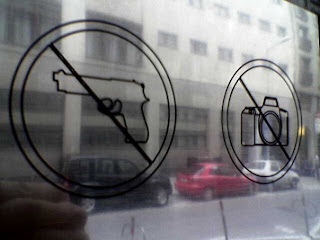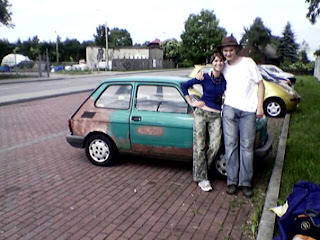
Cadaques, North East Spain
The evening sun sinks slowly behind terraced hills and terracotta roofs, gently touching the opening doors of Cadaques only church. From her perch high upon waves of golden filigree the Virgin Mary is slowly brought earthward. Slowly, conveyed by four pairs of loving hands she is gently carried outside though the already thronging crowds.
Imagine that you are this figurine, this statuette taken out to perform your sacred duty to the townsfolk. Every year you are carried down the sloping alleys and crowded streets to a tiny harbour that perches upon the south shore. From there a fishing boat conveys you around the bay from the main beach to the lighthouse that looms high on grey cliffs half a mile distant. This is your annual journey:
Out of the Church and down past a ruined house, its doors pockmarked with woodworm, cats fleeing into its caved interior.
Cadaques lies at the feet of weather-beaten mountains. Strands of olive trees grip to the hillside by way of stone terraces made long ago by locals you can glimpse in faded postcards. Those that inhabited Cadaques then depended on fish and olive oil instead of the sarongs and beach balls that their children’s children now sell in the Plaza.
Right by the clockwork toyshop, hand puppets hanging from hooks on the wall.
In the “Casino”, in reality a glorified social club empty of gamblers, one can see black and white pictures of the great frosts and snows that over fifty years ago killed thousands of olives and thus wiped out this towns livelihood until tourism was introduced.
Over the spot where craggy old women in black shawls once hawked live fish from a rusty barrow.
Past the stone mermaid set in concrete that fronts an obscure seafood restaurant.
Looking down from the eyes of an ever-wheeling gull, the town is a mass of orange roofs broken by the cracks of streets and alleys. Towards the outskirts new property leaps ever upwards, a mass of concrete oozing slowly up beige foothills.
Salvador Dali, famous for paintings of oozing clocks and warped elephants once called this town home (as is evident by his penis shaped swimming pool over the hills in Port Legat). His statue guards the square, eyes towards the heavens and moustache neatly preened. There are pictures somewhere, pictures of Kevin and myself clinging to Dali’s form, just minutes before he and Robin waved goodbye and left Spain (Kevin not Dali).
Past tourists sitting astride walls, their cameras clicking and recording in time with the music.
Through the plaza where huge crowds ebb and flow among the shady trees.
Onto a boat bobbing slowly against the quay where half the local population stands expectant, crossing themselves as you pass.
Half an hour later you bless Sasabolia and are serenaded by the squawks of sea gulls, the hoots of locals with foghorns and the crash of dark brakers hitting against the cliffs.
In a world where fishing boats can be plucked beneath the seas with all hands lost, Religion and superstition become extremely important. Thus a statue of Mary must make her annual trips to old and mostly forgotten fishing coves, blessing the grounds in the hope that no men will die at sea during the following year.
Afterwards you are returned to the church, stowed safely by the alter and forgotten until next year. From the other side of think oak doors the hoot of a trumpet and the buzz of ever-present mopeds can be heard on the breeze as town life carries on into the fading daylight

Leaving the harbor

Procession of the ships

The view from the bay

The Virgin nearing the cathedral




























